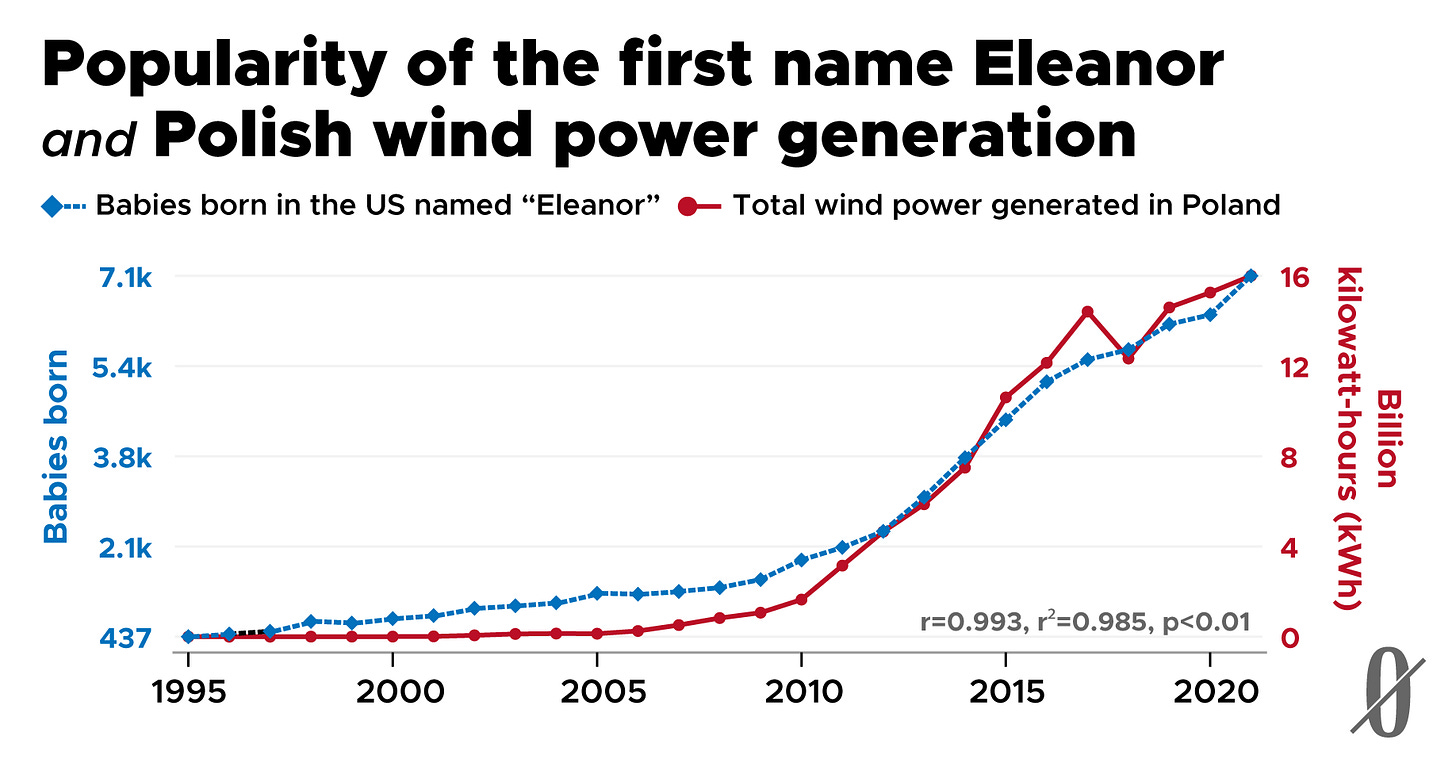The AI Doctor Will See You Now
Plus: Bogus books, weapons in space, trouble in the tropics, Israel updates, Trump v. the media, and more!
—OpenAI’s o1 large language model exhibits “superhuman performance” on some kinds of medical reasoning, according to a study conducted by researchers at Harvard and Stanford medical schools and other institutions. The study compared the LLM with human physicians in six realms—such as diagnosing emergency room cases—and found “consistent superhuman performance in every experiment.” Meanwhile, in Saudi Arabia, a Chinese startup has opened the world’s first clinic in which an AI doctor will diagnose and prescribe medications for patients on its own, after interviewing them and examining test results.
—Biomedical journals are increasingly publishing AI-driven analyses that put forth “misleading health claims” based on spurious correlations, according to a study covered in Nature. Analyzing 341 research papers that used survey data to link a complex disorder to a single variable, the study’s authors found that an “explosion” in the publication of questionable studies happened in 2022. That was “around the time that large language models started to become more sophisticated and mainstream,” the authors note. These findings bring to mind recent research by Spurious Correlations creator Tyler Vigen:

—Anthropic launched its new large language model, Claude Opus 4, with the strictest safeguards it’s ever used—“AI Safety Level 3” or ASL-3—because of the model’s potential to help someone build a biological, nuclear, radiological, or chemical weapon. The safeguards make it harder to do things like circumvent Opus’s guardrails or steal its “weights” (which would let the thief re-create the model). “No model has hit this threshold before,” tweeted former OpenAI safety lead Steven Adler, who praised Anthropic’s robust testing but lamented that such testing is voluntary. “Tests like these should be required across leading Al companies,” he wrote.
—Newspapers around the country published a summer books list consisting mainly of titles that were products of AI hallucination. The 15-book list, which ran in the Chicago Sun-Times, the Philadelphia Inquirer, and other papers, included 10 non-existent books, some attributed to such venerated authors as Isabelle Allende and Percival Everett. The list was supplied by Hearst-owned King Features, which sells syndicated content, including comic strips and puzzles. The Sun-Times apologized for what it called a “learning moment.”
—President Trump signed into law the “Take It Down Act,” which criminalizes the sharing of sexually explicit AI deepfakes and other “nonconsensual intimate images.” The bill breezed through Congress despite warnings from civil liberties groups that some provisions—like requiring platforms to remove flagged content within 48 hours or face fines—could be used to chill speech. Trump inflamed those concerns in March when he said in a joking tone that “I’m going to use that bill for myself, too, if you don’t mind, because nobody gets treated worse than I do online.”
—President Trump inaugurated the “Golden Dome” missile defense project, which would put American weapons in space for the first time, and appointed a four-star Space Force general to oversee it. China warned that the Golden Dome would “exacerbate the risk of turning outer space into a battlefield and starting an arms race,” while Russia said the project underlines the need for renewed US-Russia talks on nuclear weapons and other issues related to “strategic stability.” The Golden Dome, named after Israel’s “Iron Dome” missile defense system, would combine land-based and space-based military assets.
—Nvidia plans to build a research center in Shanghai to study ways to boost its sales, which have slumped in China because of export restrictions imposed by President Biden and tightened under Trump. Rush Doshi, a former Biden adviser who helped design the restrictions, urged Trump to block the move, warning that it could expose Nvidia to security threats. Nvidia CEO Jensen Huang, for his part, dismissed export controls as a “failure,” saying they’ve pushed China to accelerate development of its own chip-making infrastructure.
—President Trump said he’s on the verge of brokering peace between the Democratic Republic of Congo and Rwanda. Trump’s announcement came several weeks after Congo approached Washington with a minerals-for-security proposal, according to Bloomberg. Congo produces three quarters of the world's cobalt—an ingredient in lithium-ion batteries—but Chinese companies currently buy nearly all of it.
—The world’s tropical forests were destroyed at a record rate in 2024, releasing more greenhouse gases than are emitted annually in the European Union, according to a new study from researchers at the University of Maryland. Wildfires, once rare in the tropics, caused much of this destruction, bolstering the theory that climate change is leading to a “feedback loop.” In this scenario, warming temperatures create conditions for fires that, as an analyst at the World Resources Institute told the BBC, are “much more ferocious than they’ve ever been.”

—Even if Earthlings succeed in limiting the increase of global average temperatures to 1.5 degrees Celsius above pre-industrial levels (the Paris Accord goal), sea levels will still rise by several meters in the coming centuries, according to a study published in Communications Earth & Environment. The authors say sea level rise caused by melting ice sheets could displace more than 230 million people. “You’re going to see massive land migration on scales that we've never witnessed since modern civilization,” a glaciologist and co-author of the study told CNN.
—Israel allowed a limited number of aid trucks to enter Gaza, partially lifting its three-month blockade. The move came after the European Union launched a review of its trade ties with Israel, and France, Canada, and Britain threatened “concrete actions” unless Israel ends the war and lifts the blockade. United Nations officials said the aid still falls short of what is needed to address the humanitarian crisis in Gaza, where roughly 500,000 people remain at “critical risk of famine,” according to a UN panel.
—Israeli soldiers fired “warning shots” near a group of diplomats in the West Bank, Israel’s military said, explaining that the gunfire was meant to push the delegation back to its “approved route.” The disruption occurred as some in the delegation, which included officials from Europe, Asia, and the Middle East, participated in media interviews in the Jenin refugee camp. Israeli forces have conducted numerous deadly raids in Jenin in recent months. Kaja Kallas, the European Union’s top foreign policy official, demanded that Israel hold the shooters accountable, adding that “any threats on diplomats’ lives are unacceptable.”
—President Trump is “frustrated” about what’s happening in Gaza and “wants the war to end,” an anonymous White House official told Axios. Some commentators expressed skepticism about the significance of the report, comparing it to stories about President Biden’s behind-the-scenes “frustrations” with Israel. Meanwhile, the Trump administration is pushing Israel and Hamas to accept a new ceasefire proposal that would stop Israel from implementing a plan that involves, as an Axios report put it, “reoccupying the entire Gaza Strip and flattening it.”

—Israel may be preparing to attack Iranian nuclear facilities, CNN reports, citing sources in the US intelligence community. Such an attack would be a “brazen break” with the Trump administration as it negotiates a potential nuclear deal with Iran, CNN writes, paraphrasing US officials. Some analysts played down the news, with one saying he’s seen “about 5,000 versions of this story since 2009” and arguing that it may just be a signal to Iran that a strike is “still on the table.”
—CBS News President Wendy McMahon resigned in what staffers and media watchers say is more fallout from Trump’s battles with the press. McMahon reportedly stepped down amid pressure from Paramount, CBS’s parent, to settle a lawsuit filed by Trump over a 60 Minutes segment—at a time when Shari Redstone, Paramount’s controlling shareholder, is hoping to get approval from Trump’s FCC to sell Paramount. Other media or social media companies—ABC and Meta—have settled Trump lawsuits that they probably would have won, putting tens of millions of dollars in the president’s pockets.
—Vietnamese officials expedited the approval of a $1.5 billion Trump Organization resort so that Eric Trump could break ground on the project during his current visit to Hanoi, Reuters reports. The gesture comes as the Vietnamese government is lobbying President Trump to abandon his threat to subject Vietnamese imports to a 46 percent tariff. As the president ponders that policy question, his son Eric will “explore plans” to build a skyscraper in Ho Chi Minh City.
Banners and graphics by Clark McGillis.







